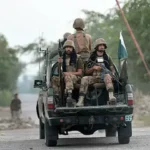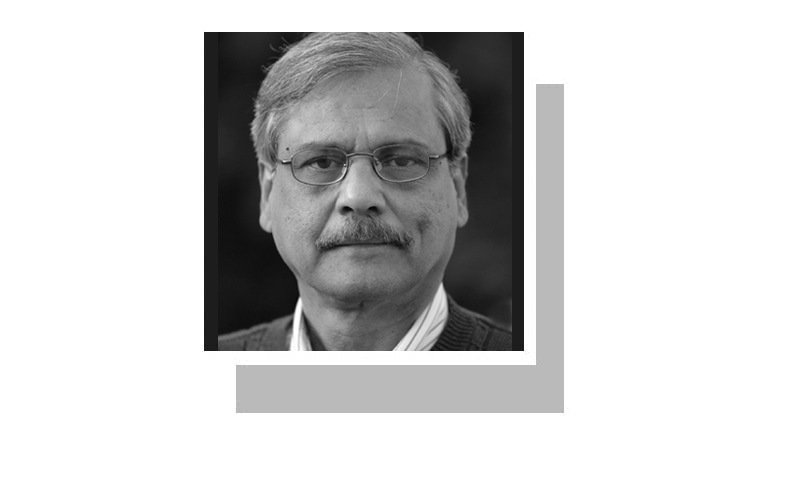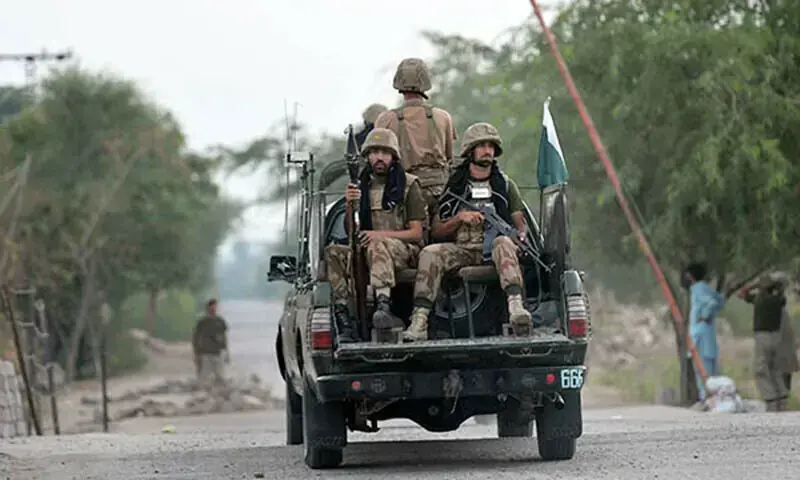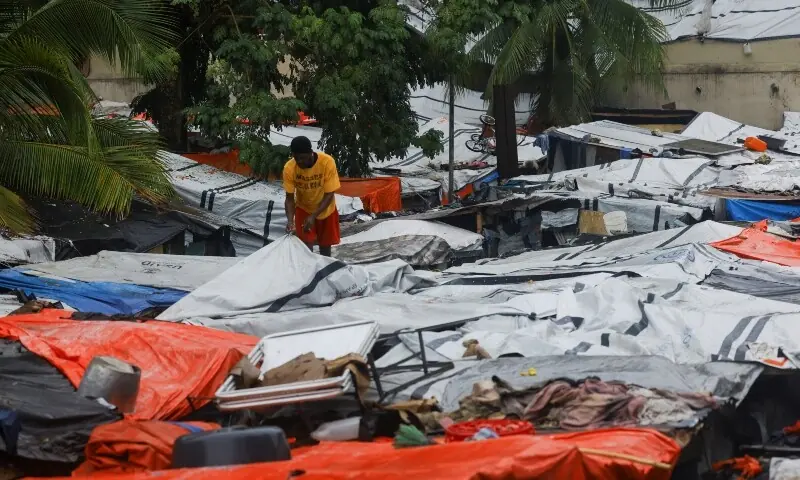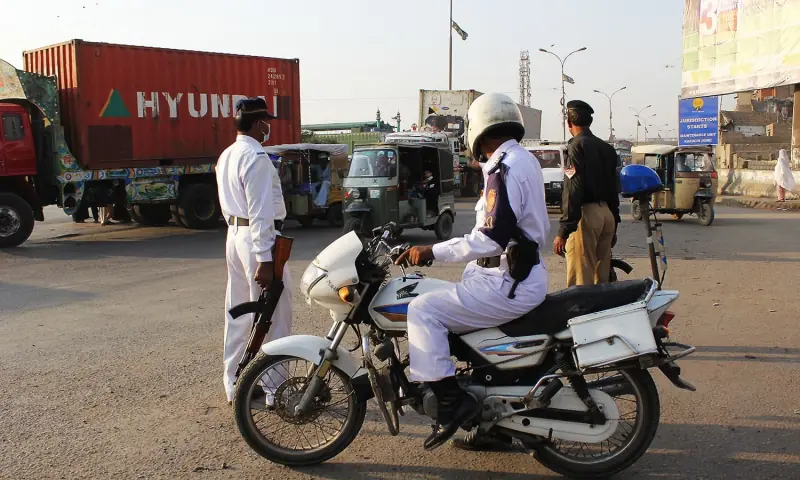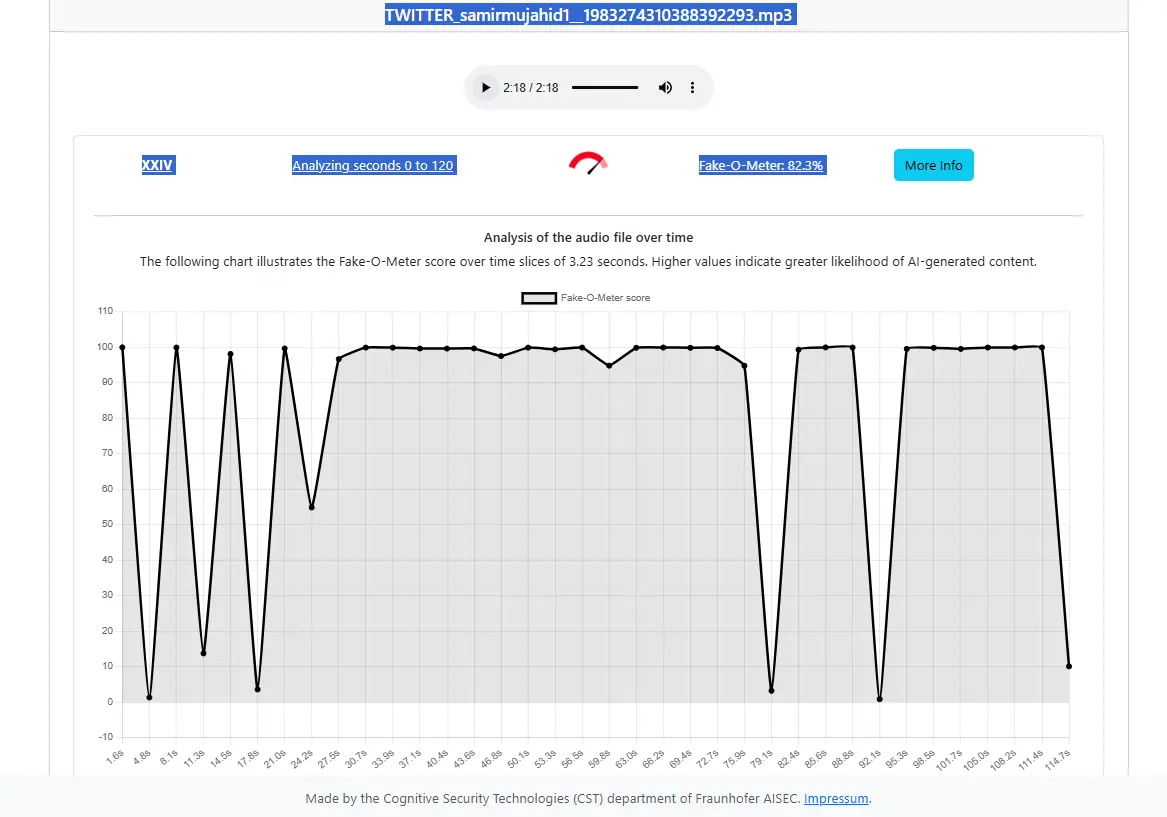PAKISTAN has banned the TLP again. It is the second time in four years that the violent political-religious group has been outlawed. The measure was taken by the federal government after the group turned Lahore into a virtual battlefield, destroying public property and attacking law enforcement. Several people, including police officers, were killed and injured.
It was the worst incident of violence by a religious group in Lahore in recent times. The government affirms that this time the State will not succumb to any type of threat or blackmail. The crackdown on the group, which has strong mass support in Punjab, has been intense. But given his record of appeasement, there are still questions about the seriousness of the latest government action.
There is also the question of policy addressing the violent extremism that is now so deeply embedded in society. The TLP is just a symptom of a threat that threatens our social fabric and the unity of the State. The rise of religious extremism in Pakistan is largely a result of the state’s own policies.
In fact, the TLP is a product of the impunity granted by the State to extremist ideology. Has there been a genuine change in state policy towards religious extremism? Simply banning the TLP will not solve the problem of religious extremism in the country. There is no indication that the State is willing to completely eradicate violent extremism.
There is a need to address the root causes of religious extremism in the country.
The TLP ban in 2021 lasted only a few months before the state bowed under pressure from the extremist group. Not only was the ban lifted, but the party, accused of rioting and killing police officers, was allowed to participate in the general elections. It emerged as the fourth largest party in the country in terms of number of votes, with its main support in Punjab.
That shows how deeply religious extremism has infiltrated the mainstream. A party that was born out of a movement supporting the assassin of a Punjab governor, falsely accused of blasphemy and murdered in 2011, has become a major political force in Pakistan’s largest and most powerful province. It could not have happened without the State having allowed him impunity. The group saw a meteoric rise after its infamous dharna in Islamabad in 2017, which paralyzed the federal capital for over a month due to a law passed by parliament.
It is curious that the State seemed powerless in the face of a mob of a few hundred defying parliament and the order of the government. The dharna ended after the administration accepted their demands. Interestingly, the agreement also had the signature of a senior ISI official. A Supreme Court observation in the case questioned the intelligence agency’s role in the TLP protest. It became a scandal when a picture of a senior army officer distributing money to the crowd dispersing after the deal appeared in the media.
Most alarming was the TLP’s role in weaponizing the blasphemy law. There has been a marked increase in mob lynchings over false accusations of blasphemy. The lynching of a Sri Lankan employee in a garment factory in Sialkot a few years ago, the burning to death of a man in Swat, as well as the shooting of a doctor by a police officer in Mirpurkhas are just a few examples of the misuse of blasphemy laws.
There are also questions about the Electoral Commission’s decision to not only register a group with a violent history as a political party but also allow it to participate in the elections. The decision violated the law. With its more extreme religious ideology, the TLP managed to devour the vote bank of other moderate political-religious parties.
Now the government has decided to ban the TLP and remove it from the list of political parties. The reference is being sent to the Supreme Court for approval, and the court may not object to the government’s action. But there is still the question of whether simply banning the party can address the problem of violent religious extremism. The government’s action against the TLP was in response to the group’s violent protests and not because of its extremist ideology and its attacks on religious minorities and their places of worship, which have become rampant particularly in Punjab. All this has been happening for a long time without the administration taking action against the perpetrators.
Simply banning a party will not be effective if the State is not fully committed to enforcing the law against all religious extremist forces. The real problem is not the group but the extremist ideology it defends. We have many examples of banned sets that resurfaced under different names. This could also happen in the case of BPD.
There is a need to address the root causes of religious extremism in the country. Support for the TLP and other extremist groups largely comes from semi-educated and underprivileged sections of society, who are easily influenced. This does not mean, however, that other sectors are not also influenced by radical groups.
A country where more than 40 percent of the population lives below the poverty line and 25 million children are out of school offers fertile ground for extremist religious groups to mobilize support. Furthermore, the TLP and other extremist groups try to legitimize their actions through some flawed legal provisions. The exploitation of religion for political gain also provides sustenance for extremist groups.
If the state is sincere about eradicating religious extremism, it must address socio-economic issues. The growing population is adding to the ranks of the country’s unemployed, meaning it is also providing easily influenced recruits for extremist groups. Our own educational system creates extremist mentalities. Simply banning TLP without addressing these issues will not solve the problem of religious extremism.
The writer is an author and journalist.
zhussain100@yahoo.com
X: @hidhussain
Published in Dawn, October 29, 2025

